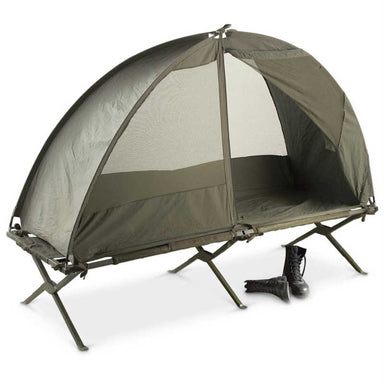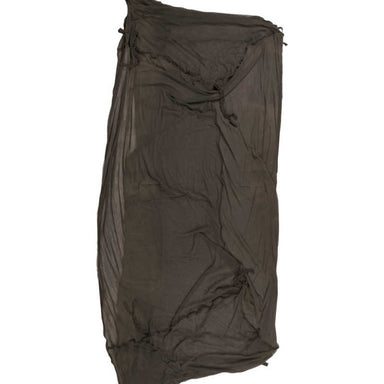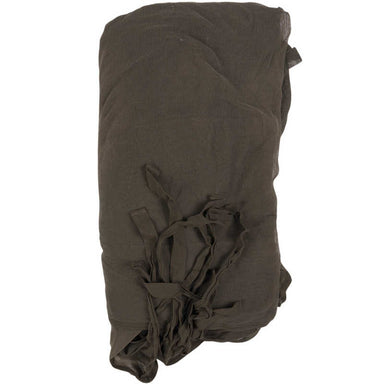
French Military | OD Mosquito Net | Tent
Looking for a way to camp when the weather is hot without getting eaten alive by bugs? Check out these cool French Military Mosquito Net tents! Mad...
View full details
French military history is extensive and encompasses a wide range of conflicts, innovations, and strategic developments. Here's an overview highlighting key aspects of French military history:
Hundred Years' War (1337-1453): France and England fought over control of French territories. Joan of Arc's leadership and French resilience led to eventual victory and consolidation of the French monarchy.
Italian Wars (1494-1559): France participated in a series of conflicts in Italy against other European powers, including the Habsburg Empire and the Papal States, to expand its influence.
Military Reforms: King Louis XIV centralized and professionalized the French Army, establishing it as a powerful force in Europe.
War of the Spanish Succession (1701-1714): France fought against the Grand Alliance to secure the Spanish throne, leading to territorial adjustments and the balance of power in Europe.
Napoleonic Wars (1799-1815): Under Napoleon Bonaparte, France expanded its empire across Europe through innovative military tactics and strategies. The wars ended with Napoleon's defeat at Waterloo and the Congress of Vienna.
Colonial Expansion: France established a vast colonial empire in Africa, Asia, and the Americas, deploying military forces to protect and expand its territories.
World War I (1914-1918): France, as part of the Allies, fought against Germany and Austria-Hungary on the Western Front, enduring significant casualties but contributing to victory.
Occupation and Resistance: France faced occupation by Nazi Germany during World War II (1939-1945), with the French Resistance playing a crucial role in liberation efforts.
Free French Forces: Charles de Gaulle led the Free French Forces, rallying French resistance and contributing to Allied victories in North Africa and Europe.
Decolonization: France decolonized its territories in Africa and Asia after World War II, maintaining military engagements during conflicts such as the Algerian War (1954-1962).
NATO and European Defense: France became a founding member of NATO and developed its own nuclear deterrent, maintaining a significant role in European defense cooperation.
Structure and Operations: The French Armed Forces include the Army, Navy, Air Force, and Gendarmerie, with a focus on defense readiness, international peacekeeping, and counterterrorism operations.
Global Operations: France participates in UN peacekeeping missions, NATO operations, and humanitarian interventions, demonstrating its commitment to global security and stability.
French military history reflects a legacy of strategic innovation, cultural influence, and global engagement, shaping European and international military strategies over centuries. The French Armed Forces continue to adapt to modern challenges while upholding traditions of professionalism and defense of national interests.
 Save Liquid error (snippets/product-badge line 32): Computation results in '-Infinity'%
Save Liquid error (snippets/product-badge line 32): Computation results in '-Infinity'%
Looking for a way to camp when the weather is hot without getting eaten alive by bugs? Check out these cool French Military Mosquito Net tents! Mad...
View full details
 Sold out
Sold out
The French F1 Commando Tent, designed for military use, exemplifies the blend of functionality and durability required in challenging environments....
View full details
 Save Liquid error (snippets/product-badge line 32): Computation results in '-Infinity'%
Save Liquid error (snippets/product-badge line 32): Computation results in '-Infinity'%
Looking for a more versatile military bug net? Well check out these military bug nets! Very similar to the French Mosquito Net Tent with a bottom ...
View full details
 Save Liquid error (snippets/product-badge line 32): Computation results in '-Infinity'%
Save Liquid error (snippets/product-badge line 32): Computation results in '-Infinity'%
Need a brain bucket? These French Gendarmerie helmets are some serious equipment. Old and trustworthy these helmets are in great condition! The st...
View full details Save Liquid error (snippets/product-badge line 32): Computation results in '-Infinity'%
Save Liquid error (snippets/product-badge line 32): Computation results in '-Infinity'%
Dated in the mid 1990's these French F2 CCE Camo field jackets are top notch! Similar to the USGI Woodland mosaic pattern, the French adapted velcr...
View full details
